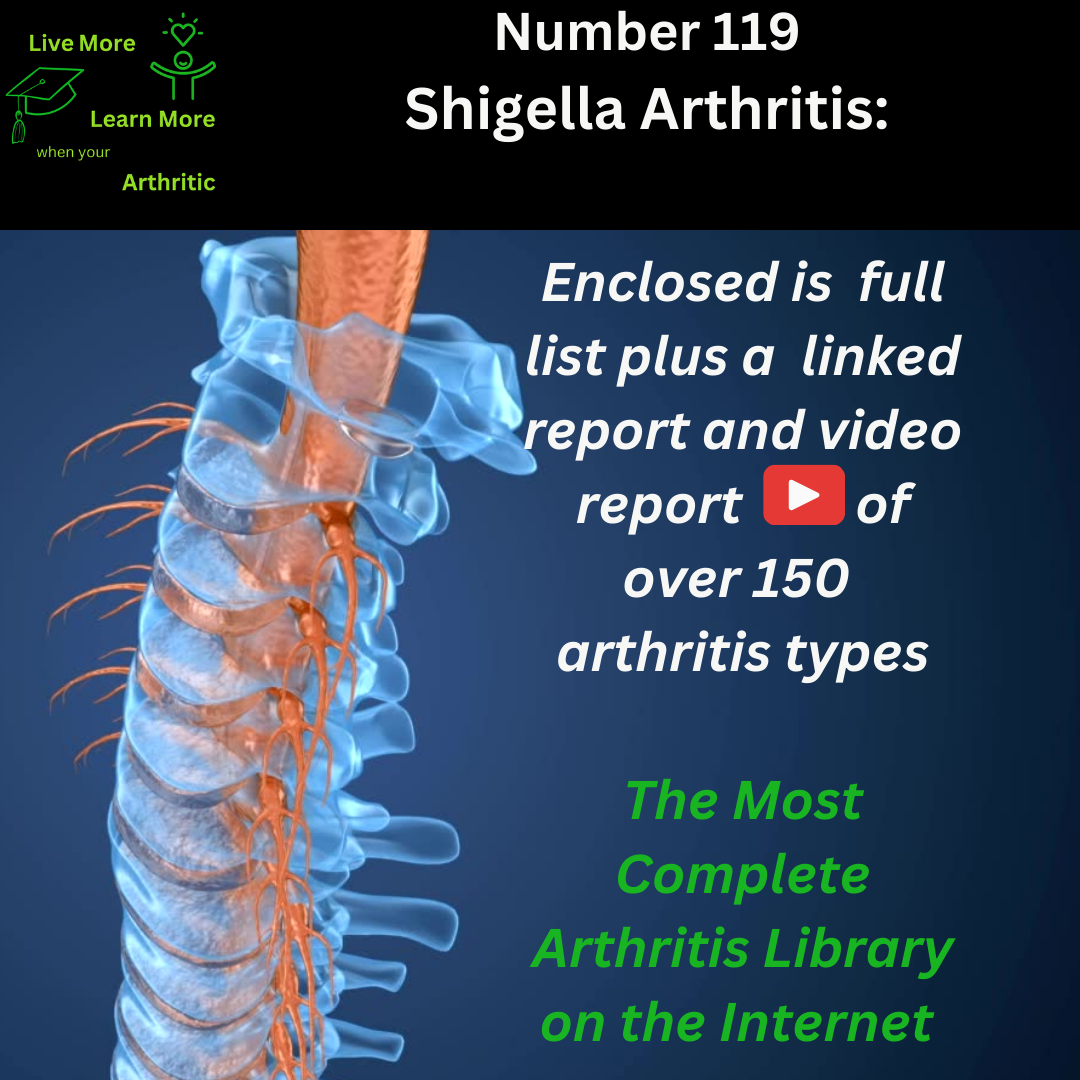
Shigella Arthritis: Number 119 of around 150 types of Arthritis
Exploring Shigella Arthritis
Shigella arthritis is a rare but serious condition caused by an infection with Shigella bacteria, which typically leads to gastrointestinal symptoms such as diarrhea and abdominal pain. However, in some cases, the bacteria can spread to joints, causing inflammation and joint pain. Let’s delve into the details of this unique form of arthritis.
Shigella arthritis primarily affects large joints such as the knees, ankles, hips, and shoulders. The infection causes acute joint pain, swelling, redness, and warmth. In severe cases, individuals may experience limited range of motion due to inflammation and pain.
Description and Causes
Shigella bacteria are transmitted through contaminated food or water, leading to gastrointestinal infection. In rare instances, the bacteria can enter the bloodstream and reach the joints, triggering an inflammatory response. Shigella arthritis is considered a reactive arthritis, where joint symptoms arise as a reaction to an infection elsewhere in the body.
Onset and Risk Factors
Shigella arthritis can occur at any age but is more common in young children and older adults. Individuals with weakened immune systems, chronic illnesses, or those living in unsanitary conditions are at higher risk of developing Shigella infections and subsequent arthritis.
Complications and Impact
The primary complication of Shigella arthritis is joint damage and chronic inflammation if the infection is not promptly treated. Persistent joint symptoms can lead to reduced mobility and quality of life. In severe cases, chronic joint inflammation may require long-term management and interventions.
Mechanism of Symptoms
The inflammation caused by Shigella bacteria in the joints leads to swelling, pain, and tenderness. The immune system’s response to the infection results in the release of inflammatory mediators, damaging joint tissues such as cartilage and causing functional impairment.
Improving Quality of Life
With prompt diagnosis and appropriate treatment, individuals with Shigella arthritis can achieve a higher quality of life. Antibiotics to eradicate the bacterial infection, along with anti-inflammatory medications and physical therapy, can help manage symptoms and prevent long-term joint damage.
Possible Complications
Complications of Shigella arthritis include chronic joint inflammation, joint deformities, and persistent pain. In some cases, secondary infections or systemic complications may occur if the infection spreads beyond the joints.
Demographic Trends
Shigella infections can affect individuals of all ages but are more common in children under five years old. The condition does not show a significant gender predilection.
Individuals with Shigella arthritis may be at increased risk of developing other reactive arthritis conditions, such as those triggered by other bacterial infections like Salmonella or Campylobacter. Close monitoring and appropriate management of associated conditions are crucial for comprehensive healthcare.
In summary, Shigella arthritis is a unique form of reactive arthritis caused by an infection with Shigella bacteria. While rare, this condition can have a significant impact on joint health and overall well-being. With timely diagnosis, appropriate treatment, and proactive management, individuals can effectively manage symptoms and improve their quality of life despite the challenges posed by this bacterial-induced arthritis.



